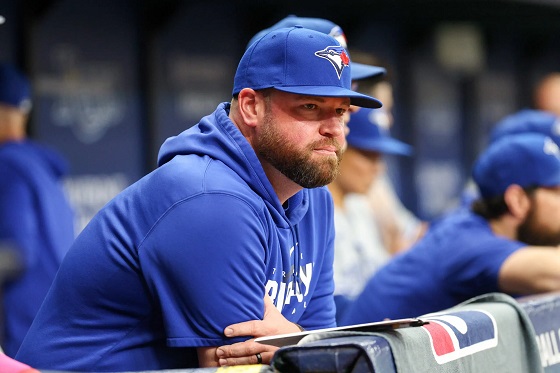Uncategorized
Northern California fire death toll at 56; 130 missing
MAGALIA, Calif. — As the scope of a deadly Northern California wildfire set in, the sheriff said more than 450 people had now been assigned to comb through the charred remains in search for more bodies. The blaze has killed at least 56 people and authorities say 130 are unaccounted for.
Many of the missing are elderly and from Magalia, a forested town of about 11,000 to the north of Paradise.
The one major roadway that runs through the mostly residential town is dotted with gas stations, a pizza shop, a hair salon and Chinese restaurant and convenience stores. There is no Main Street or town
“When I say downtown I mean Paradise,” said Pohmagevich, who opted to stay in Magalia even as fire closed in.
Pohmagevich, an 18-year Magalia resident who works at Timber Ridge Real Estate and lives just up the road from many burned homes, said he stayed to protect his employer’s property from looters and to prepare some cabins and mobile homes so business tenants can live if they come back.
“If this town does recover, it’s going to take many, many years,” he said.
A week after the deadly Camp Fire struck, police teams drive around Magalia searching for those still in their homes, checking if they need any food and water. Crews from Pacific Gas & Electric are also in the area. With the death toll at 56, it is the deadliest wildfire in a century . There were also three fatalities from separate blazes in Southern California.
As officials raised the loss of homes to nearly 8,800 Wednesday, Sheriff Kory Honea said the task of recovering remains had become so vast that his office brought in another 287 searchers Wednesday, including National Guard troops, bringing the total number of searchers to 461 plus 22 cadaver dogs. He said a rapid-DNA assessment system was expected to be in place soon to speed up identifications of the dead, though officials have tentatively identified 47 of the 56.
Interior Secretary Ryan Zinke joined California Gov. Jerry Brown Wednesday on a visit to the nearby
“Now is not the time to point fingers,” Zinke said. “There are lots of reasons these catastrophic fires are happening.” He cited warmer temperatures, dead trees and the poor forest management.
Brown, a frequent critic of President Donald Trump’s policies, said he spoke with Trump, who pledged federal assistance.
“This is so devastating that I don’t really have the words to describe it,” Brown said, saying officials would need to learn how to better prevent fires from becoming so deadly .
It will take years to rebuild, if people decide that’s what should be done, said Brock Long, administrator of the Federal Emergency Management Agency.
“The infrastructure is basically a total rebuild at this point,” Long said.
While most of the town of Paradise was wiped out, in Magalia, a sharp dividing line marks those that survived and those that did not.
“Magalia has so many trees. I honestly can’t believe it just didn’t get
For some, the areas left untouched offered a ray of hope.
Tom Driver, the office manager and elder at Magalia Community Church, said he had heard the church survived the blaze, though he did not know the status of his own home.
“I’ve been able to account for all of the congregation,” said Driver, who is staying with family in Oakland. “They’re all over the place but they got out in pretty good time.”
Driver said many residents of Magalia work at the university in Chico or out of their homes. When the blaze spread into Paradise, residents there drove down and faced horrendous traffic. Driver said he and some others in Magalia were able to escape north on a winding narrow road that put them ahead of the fire, not behind it.
Kim Bonini heard someone on a bullhorn two blocks over on Thursday urging people to leave. The power in her home had gone out that morning, leaving her only with her car radio to tell her if she needed to leave.
“My cell didn’t work, my house phone didn’t work, nothing. Nothing except for me crawling into my car,” Bonini said from her daughter’s home in Chico on Wednesday. “If I wouldn’t have heard them two blocks down I wouldn’t have known I had to evacuate.”
The cause of the fire remained under investigation, but it broke out around the time and place that a utility reported equipment trouble.
___
Associated Press writers Janie Har and Olga R. Rodriguez in San Francisco, Amy Taxin in Santa Ana, California and Andrew Selsky in Salem, Oregon, also contributed to this report.
Kathleen Ronayne, The Associated Press
Uncategorized
Cost of bureaucracy balloons 80 per cent in 10 years: Public Accounts

The cost of the bureaucracy increased by $6 billion last year, according to newly released numbers in Public Accounts disclosures. The Canadian Taxpayers Federation is calling on Prime Minister Mark Carney to immediately shrink the bureaucracy.
“The Public Accounts show the cost of the federal bureaucracy is out of control,” said Franco Terrazzano, CTF Federal Director. “Tinkering around the edges won’t cut it, Carney needs to take urgent action to shrink the bloated federal bureaucracy.”
The federal bureaucracy cost taxpayers $71.4 billion in 2024-25, according to the Public Accounts. The cost of the federal bureaucracy increased by $6 billion, or more than nine per cent, over the last year.
The federal bureaucracy cost taxpayers $39.6 billion in 2015-16, according to the Public Accounts. That means the cost of the federal bureaucracy increased 80 per cent over the last 10 years. The government added 99,000 extra bureaucrats between 2015-16 and 2024-25.
Half of Canadians say federal services have gotten worse since 2016, despite the massive increase in the federal bureaucracy, according to a Leger poll.
Not only has the size of the bureaucracy increased, the cost of consultants, contractors and outsourcing has increased as well. The government spent $23.1 billion on “professional and special services” last year, according to the Public Accounts. That’s an 11 per cent increase over the previous year. The government’s spending on professional and special services more than doubled since 2015-16.
“Taxpayers should not be paying way more for in-house government bureaucrats and way more for outside help,” Terrazzano said. “Mere promises to find minor savings in the federal bureaucracy won’t fix Canada’s finances.
“Taxpayers need Carney to take urgent action and significantly cut the number of bureaucrats now.”
Table: Cost of bureaucracy and professional and special services, Public Accounts
| Year | Bureaucracy | Professional and special services |
|
$71,369,677,000 |
$23,145,218,000 |
|
|
$65,326,643,000 |
$20,771,477,000 |
|
|
$56,467,851,000 |
$18,591,373,000 |
|
|
$60,676,243,000 |
$17,511,078,000 |
|
|
$52,984,272,000 |
$14,720,455,000 |
|
|
$46,349,166,000 |
$13,334,341,000 |
|
|
$46,131,628,000 |
$12,940,395,000 |
|
|
$45,262,821,000 |
$12,950,619,000 |
|
|
$38,909,594,000 |
$11,910,257,000 |
|
|
$39,616,656,000 |
$11,082,974,000 |
Uncategorized
Trump Admin Establishing Council To Make Buildings Beautiful Again


From the Daily Caller News Foundation
By Jason Hopkins
The Trump administration is creating a first-of-its-kind task force aimed at ushering in a new “Golden Age” of beautiful infrastructure across the U.S.
The Department of Transportation (DOT) will announce the establishment of the Beautifying Transportation Infrastructure Council (BTIC) on Thursday, the Daily Caller News Foundation exclusively learned. The BTIC seeks to advise Transportation Secretary Sean Duffy on design and policy ideas for key infrastructure projects, including highways, bridges and transit hubs.
“What happened to our country’s proud tradition of building great, big, beautiful things?” Duffy said in a statement shared with the DCNF. “It’s time the design for America’s latest infrastructure projects reflects our nation’s strength, pride, and promise.”
“We’re engaging the best and brightest minds in architectural design and engineering to make beautiful structures that move you and bring about a new Golden Age of Transportation,” Duffy continued.
Mini scoop – here is the DOT’s rollout of its Beautifying Transportation Infrastructure Council, which will be tasked with making our buildings beautiful again. pic.twitter.com/
9iV2xSxdJM — Jason Hopkins (@jasonhopkinsdc) October 23, 2025
The DOT is encouraging nominations of the country’s best architects, urban planners, artists and others to serve on the council, according to the department. While ensuring that efficiency and safety remain a top priority, the BTIC will provide guidance on projects that “enhance” public areas and develop aesthetic performance metrics.
The new council aligns with an executive order signed by President Donald Trump in August 2025 regarding infrastructure. The “Making Federal Architecture Beautiful Again” order calls for federal public buildings in the country to “respect regional architectural heritage” and aims to prevent federal construction projects from using modernist and brutalist architecture styles, instead returning to a classical style.
“The Founders, in line with great societies before them, attached great importance to Federal civic architecture,” Trump’s order stated. “They wanted America’s public buildings to inspire the American people and encourage civic virtue.”
“President George Washington and Secretary of State Thomas Jefferson consciously modeled the most important buildings in Washington, D.C., on the classical architecture of ancient Athens and Rome,” the order continued. “Because of their proven ability to meet these requirements, classical and traditional architecture are preferred modes of architectural design.”
The DOT invested millions in major infrastructure projects since Trump’s return to the White House. Duffy announced in August a $43 million transformation initiative of the New York Penn Station in New York City and in September unveiledmajor progress in the rehabilitation and modernization of Washington Union Station in Washington, D.C.
The BTIC will comprise up to 11 members who will serve two-year terms, with the chance to be reappointed, according to the DOT. The task force will meet biannually. The deadline for nominations will end Nov. 21.
-

 Alberta1 day ago
Alberta1 day agoCalgary mayor should retain ‘blanket rezoning’ for sake of Calgarian families
-

 Bruce Dowbiggin1 day ago
Bruce Dowbiggin1 day agoSports 50/50 Draws: Make Sure You Read The Small Print
-

 Alberta1 day ago
Alberta1 day agoAlberta Offers Enormous Advantages for AI Data Centres
-

 espionage1 day ago
espionage1 day agoTrump says release the Epstein files
-

 COVID-191 day ago
COVID-191 day agoNew report warns Ottawa’s ‘nudge’ unit erodes democracy and public trust
-

 Censorship Industrial Complex1 day ago
Censorship Industrial Complex1 day agoQuebec City faces lawsuit after cancelling Christian event over “controversial” artist
-

 Alberta1 day ago
Alberta1 day agoNational Crisis Approaching Due To The Carney Government’s Centrally Planned Green Economy
-

 Alberta14 hours ago
Alberta14 hours agoSylvan Lake football coach fired for opposing transgender ideology elected to town council










